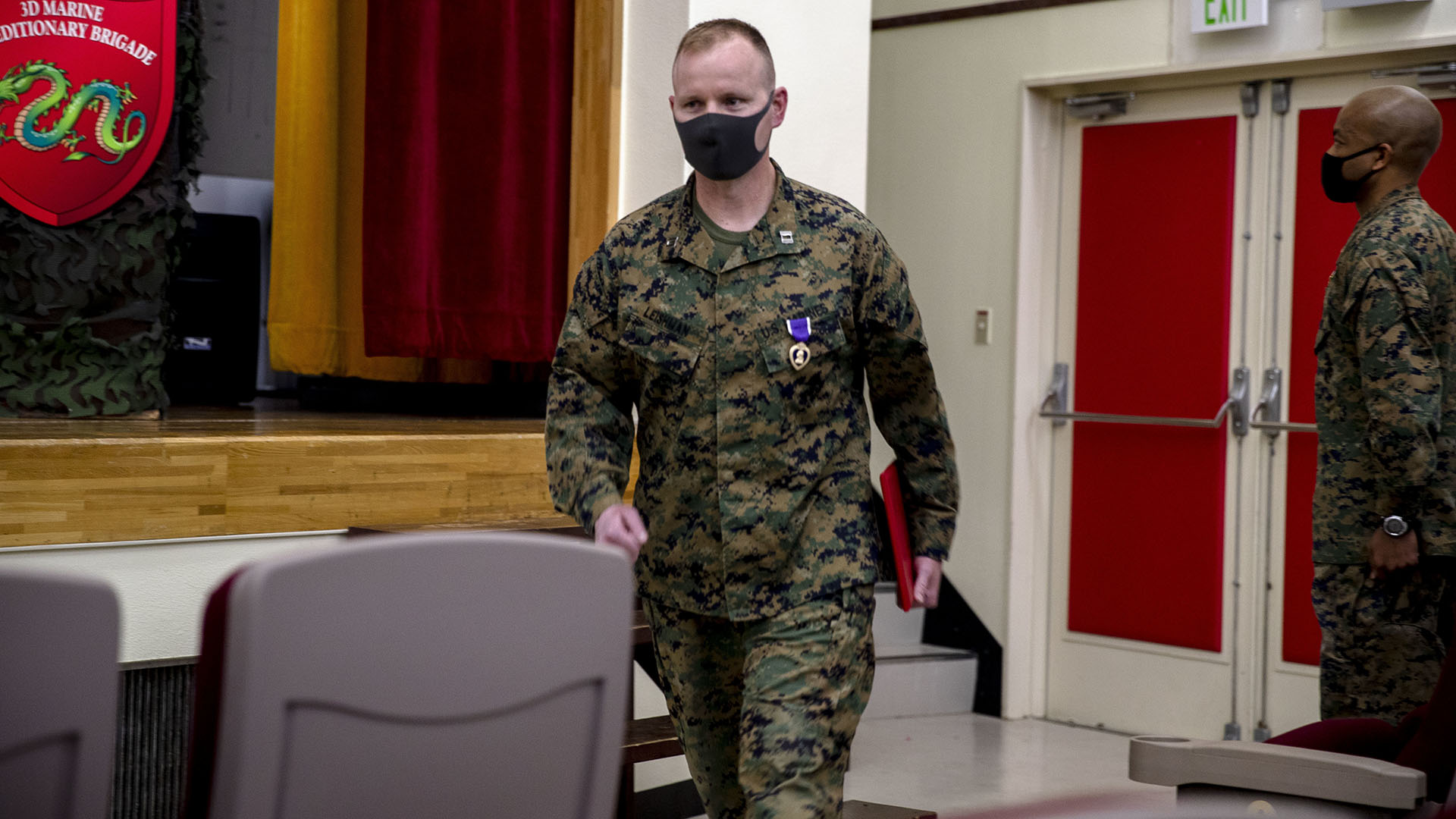

The city of Fallujah in western Iraq holds a special place in Marine Corps lore, along with the Pacific island of Tarawa and Belleau Wood in France.
Marine Capt. Kevin Leishman, who fought to retake Fallujah from insurgents, was shot in his right arm on Nov. 10, 2004, which happened to be the Marine Corps Birthday.
But it would take more than 16 years until Leishman received his Purple Heart medal for being wounded, the Marine Corps recently announced.
The reason for the delay won’t come as a surprise to those who have served in the military: There was a foul-up somewhere with the paperwork.
When Leishman was a staff sergeant, he was temporarily attached to the 11th Marine Expeditionary Unit during the Second Battle of Fallujah in late 2004. The Amphibious Assault Vehicle mechanic was firing his M-240 machine gun when he was hit.
“I didn’t know what it was right away,” Leishman said. “When you’re shooting a machine gun, you have hot brass going everywhere, and sometimes you get hot brass down your blouse.”
Hours later, he noticed he was bleeding, so he applied a field dressing.
What followed afterward is an example of bureaucracy in action. Although Leishman’s wound was documented, his medical records were never transferred to the Marine Expeditionary Unit’s medical staff and his command was apparently unaware that he had been shot when he returned to the 1st Battalion, 4th Marine Regiment.
Leishman was one of the roughly 600 service members wounded in the battle, which was framed by members of President George W. Bush’s administration at the time as an assault on Al Qaeda’s last stronghold in Iraq.
In the spring of 2004, the U.S. military attempted to clear Fallujah of insurgents following the murder of four American security contractors, but the attack was called off after Iraqi officials objected.
About 12,000 U.S. troops took part in the second battle for Fallujah, which began shortly after Bush was reelected president in November 2004. The fighting was savage, often house-to-house and then hand-to-hand.
While the battle did not destroy Al Qaeda in Iraq or the Sunni insurgency, the bravery shown by the soldiers and Marines who fought there created some of the most iconic moments of the Iraq war, including Lucian Read’s famous picture of a bloody Marine 1st Sgt, Bradley Kasal being helped by two other Marines as he limped out of the “Hell House.”
For Marines, “Fallujah” will always be synonymous with hard fighting and bravery under fire.
More than a decade after that battle, Leishman was stationed at Camp Courtney, Okinawa, when his commanding general learned that he had never received a Purple Heart medal.
Brig. Gen. Kyle Ellison, who leads the 3rd Marine Expeditionary Brigade, helped Leishman begin the process of submitting the paperwork required for him to receive the Purple Heart.
One potential challenge in starting the process 16 years after the battle was that Leishman needed to submit a statement from an eyewitness who was there when he was wounded. But through a stroke of luck, Leishman’s former platoon commander was also stationed on Okinawa with the III Marine Expeditionary Force. That allowed Leishman to finally receive his Purple Heart on Wednesday.
“It’s an honor; this is something that is shared by many and made possible by everybody that was there,” Leishman said. “So to get singled out and shown this honor, it’s great, but it’s not something I earned alone. Many that receive this [Purple Heart] aren’t alive or have significant wounds and have had to leave the Marine Corps.”
Featured image: U.S. Marine Corps Capt. Kevin W. Leishman, an Anti-Terrorism force protection officer, 3rd Marine Expeditionary Brigade, returns to his seat after being awarded the Purple Heart medal at the base theater, Camp Courtney, Okinawa, Japan, Feb. 24, 2021. (U.S. Marine Corps photo by Cpl. Francesca Landis)